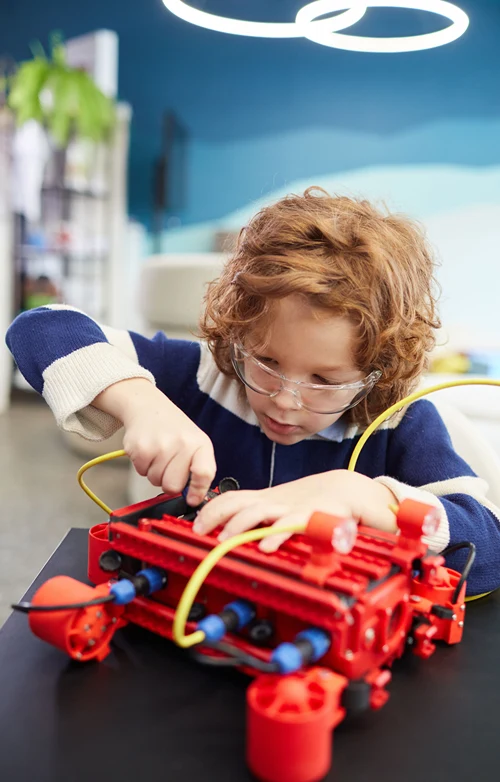The Benefits of Teaching Children Engineering
Engineering is a gateway to developing foundational life skills. Introducing children to engineering concepts early helps them build abilities that enhance their daily lives and future opportunities. Explore the key benefits of teaching children engineering and how it empowers them to grow intellectually and creatively.
Boosts Problem-Solving Skills
Engineering challenges young minds to approach problems in innovative ways. For example, children might be tasked with building a bridge using only limited materials, such as popsicle sticks and tape. These types of exercises teach kids to evaluate constraints, brainstorm solutions, and test their ideas.
One of the benefits of teaching children engineering at an early age is that it lays the foundation for them to approach challenges in their academic and personal lives more effectively. Activities such as coding or designing simple machines promote persistence and the outlook that solutions are possible with perseverance and ingenuity.
Encourages Creativity and Innovation
Engineering offers children the chance to design and create, fostering their natural curiosity. Activities such as building a model rocket or programming a robot ignite their imaginations and encourage them to think outside the box. Engineering teaches that mistakes are opportunities to improve and innovate.
Key Point
When a child’s design for a project doesn’t perform as expected, they learn to refine and adapt it. This kind of hands-on creativity leads to a lifetime of original thinking.
Develops Analytical Thinking Skills
Analytical thinking involves breaking a problem into smaller, more manageable parts and understanding how these parts fit together. Engineering tasks help children develop this skill. For example, when kids program a robot to complete a task, they learn to analyze the sequence of commands step-by-step to achieve the desired result.
Enhance Math and Science Knowledge
Engineering bridges the gap between theoretical concepts in math and science and their practical applications. When children use calculations to design a stable structure or determine the force needed to move an object, they see see the tangible results of theoretical concepts. STEM activities benefit kids by helping them understand complex concepts through hands-on learning. As analytical thinking becomes an instinctive habit, these subjects become easier in school and less intimidating at higher levels.

Prepares for Future Careers
Early exposure to engineering plays a pivotal role in preparing children for various STEM-related careers. As more technological innovations emerge, more opportunities are needed to ensure children have significant possibilities for the future.
For instance, understanding cable assembly and its importance in various computer applications is necessary for workers in numerous fields. Learning engineering concepts helps kids understand how real-world industries function, from technology to infrastructure. Whether they become civil engineers, software developers, or venture into careers outside STEM, they’ll have invaluable skills that can lead them to success.
Teaching children engineering creates opportunities for them to think independently, develop practical skills, and prepare for tomorrow’s challenges. Explore hands-on learning kits, events, or workshops near you to get started.




